* With continuous massive investments, a large number of foreign-funded enterprises still regard the world’s second-largest economy as their priority market.
* Many foreign-funded businesses find that there is no reason to leave, given China’s massive market, complete industrial chain and friendly business environment.
* China has remained the world’s largest manufacturing country for over a decade, with the quality of its supply system significantly improved, according to the Ministry of Industry and Information Technology.
For Jeffrey Lou, president and chairman of BASF Greater China, the inauguration early this month of the first plants of BASF’s Verbund site in China, its largest overseas investment to date, was a hugely exciting moment.
“With a total investment of 10 billion euros (about 9.8 billion U.S. dollars), the Zhanjiang Verbund site will be BASF’s third-largest Verbund site globally upon completion,” Lou said.
The project in Zhanjiang City, south China’s Guangdong Province, represents a new paradigm for China’s high-level opening-up and improved business environment, according to Lou.
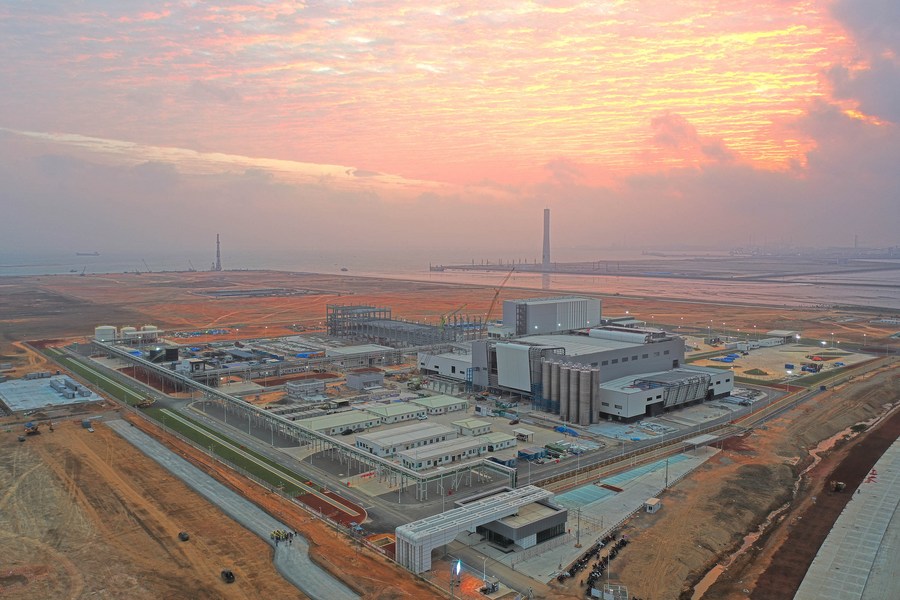
Photo taken on Jan. 21, 2022, shows a view of the BASF Zhanjiang Verbund site in Zhanjiang, south China’s Guangdong Province. (Xinhua)
With continuous massive investments, a large number of foreign-funded enterprises still regard the world’s second-largest economy as their priority market.
China remains a hot investment destination. Foreign direct investment into the Chinese mainland, in actual use, expanded 20.2 percent year on year to 138.41 billion U.S. dollars in the first eight months of the year, according to the Ministry of Commerce.
China’s huge and more open market, comprehensive industrial system and friendly business environment are among the key factors behind the country’s appeal to foreign enterprises.
EXPANDING INVESTMENT
Despite the sluggish global economy and COVID-19 pandemic, German chemical giant BASF has been an active player in the Chinese market.
“BASF entered the Chinese market in 1885 and had 31 production sites with more than 11,000 employees at the end of 2021. We are progressing several projects in full swing,” Lou said.
The third phase of the BASF Shanghai Pudong Innovation Park, the headquarters of BASF Greater China, is expected to be completed in early 2023. By then, BASF’s total investment in the integrated site will reach around 280 million euros.
Since 1995, global health care giant Novo Nordisk has expanded its investment in its facility in north China’s Tianjin Municipality eight times to boost its local presence and better serve patients in China and worldwide.
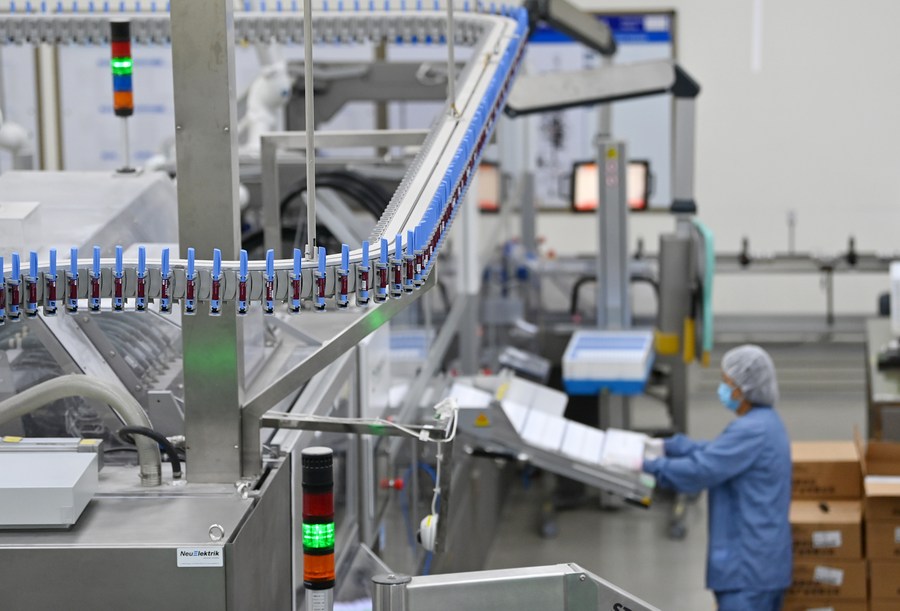
A staff member works at a workshop of Novo Nordisk (China) Pharmaceutical Co., Ltd. in north China’s Tianjin, on Sept. 22, 2022. (Xinhua/Li Ran)
The Tianjin facility is not only one of Novo Nordisk’s strategic manufacturing sites but also its only provider of durable insulin injection devices and the largest insulin production site.
In March, the Europe-based Louis Dreyfus Company (LDC) broke ground for a joint venture in Guangzhou, aiming to cover feed protein processing, high-tech ecological aquaculture, trading, food innovation and plant-based clean energy production.
LDC has benefited from China’s opening-up policy and outstanding business environment. “We have built longstanding and positive relationships with a wide range of stakeholders in the country along the way,” said Jerrity Chen, head of North Asia at LDC.
“China is a priority market for LDC. We continue to look for opportunities here to expand our presence and capacity, to help meet China’s growing demand for high-quality food and feed products and ingredients,” Chen added.
NO REASON TO LEAVE
Many foreign-funded businesses find that there is no reason to leave, given China’s massive market, complete industrial chain and friendly business environment.
“We have never considered leaving China,” said Huang Dongwen, general manager of the Strategic Planning Division at Hitachi Elevator (China) Co., Ltd. He said that China’s stable economic development, huge market demand and various investment incentives are key forces that continue to attract Hitachi’s investment and business rollout.
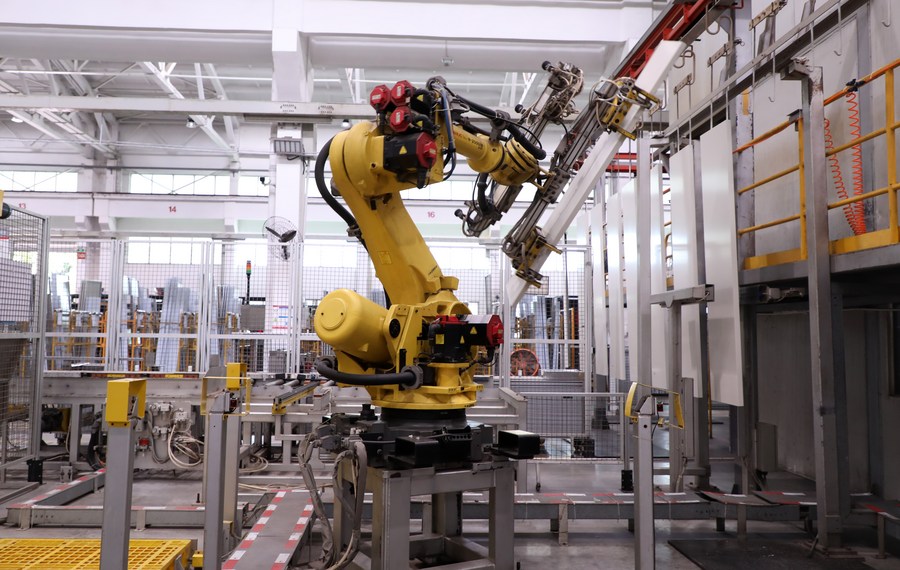
Photo taken on Sept. 28, 2022, shows an automatic production line of Hitachi Elevator (China) Co., Ltd. in Dashi of Guangzhou City, south China’s Guangdong Province. (Xinhua/Huang Guobao)
Hitachi Elevator, with five whole-elevator factories in China, has enjoyed strong growth over the years as China’s urbanization drives demand for elevators. China has a huge elevator market, with the country’s elevator ownership nearing 8.8 million units in 2021.
When its first China factory in Guangzhou, capital of Guangdong Province, began production in the 1990s, its annual production and sales volume was below 2,000 units. In 2021, its millionth elevator was delivered, and its annual revenues totaled more than 27 billion yuan (about 3.8 billion U.S. dollars).
China is one of the most important overseas markets for Hitachi Elevator, contributing more than half of its global revenues.
Huang said the layout of the industrial chain in China not only enables the company to respond quickly to the needs of local customers, but also allows it to export products to Southeast Asia and Australia, gradually reaching more markets.
The added value of China’s manufacturing sector increased from 16.98 trillion yuan in 2012 to 31.4 trillion yuan in 2021, accounting for nearly 30 percent of the global total, up from 22.5 percent. China has remained the world’s largest manufacturing country for over a decade, with the quality of its supply system significantly improved, according to the Ministry of Industry and Information Technology.
“Therefore, our development in China is a vital engine that stimulates our entire global supply chain,” Huang said.
Ma Qinghai, general manager of SMC Investment Management China Co., Ltd., a Japanese-funded enterprise in Beijing, said there is talk of manufacturing companies withdrawing from China when in fact, there is still a big gap between the manufacturing capabilities of China and other countries.
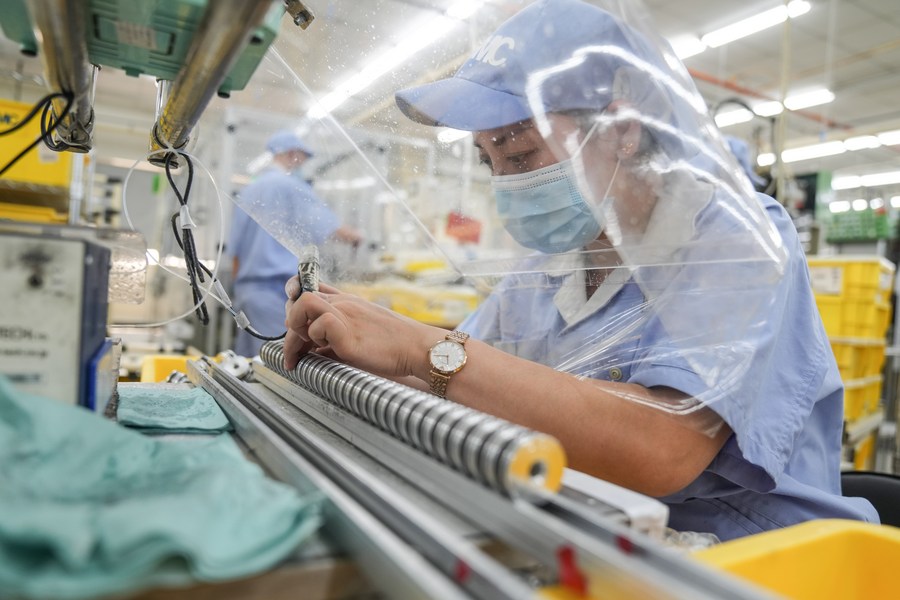
A staff member works at a factory of SMC Corporation in Beijing Economic-Technological Development Area of Beijing, capital of China, June 4, 2022. (Xinhua/Peng Ziyang)
“China’s industrial supporting facilities have been established over decades. The scale is large, and the supply chain has strong integrity,” Ma said. He added that the populations of most other countries are much smaller and therefore the labor markets and supply chains are completely different.
“Some overseas factories are even built with the help of the Chinese, and become operational with the help of Chinese technicians as much knowledge and many technological innovations are unique to China. It is impossible to replace China in the short term,” Ma said.
LDC’s Jerrity Chen said China has world-class infrastructure and the country has given the company a lot of confidence in terms of physical infrastructure, education systems, medical systems and social welfare systems.
“The Chinese government is very pro-business and we can see during the pandemic period that we have a lot of support from the government,” Chen said.
China’s business environment has continued to improve with its ease of doing business ranking ascending to 31 from 91 in 2012, according to a World Bank report.
MARKET POTENTIAL
Airbus delivered the 600th A320 family aircraft assembled at its Asia final assembly line in Tianjin (FAL Tianjin) on Sept. 23.
The company inaugurated the A320 family’s final assembly line in Tianjin in 2008. By the end of 2021, Airbus had assembled and delivered 555 A320 series aircraft from the facility.
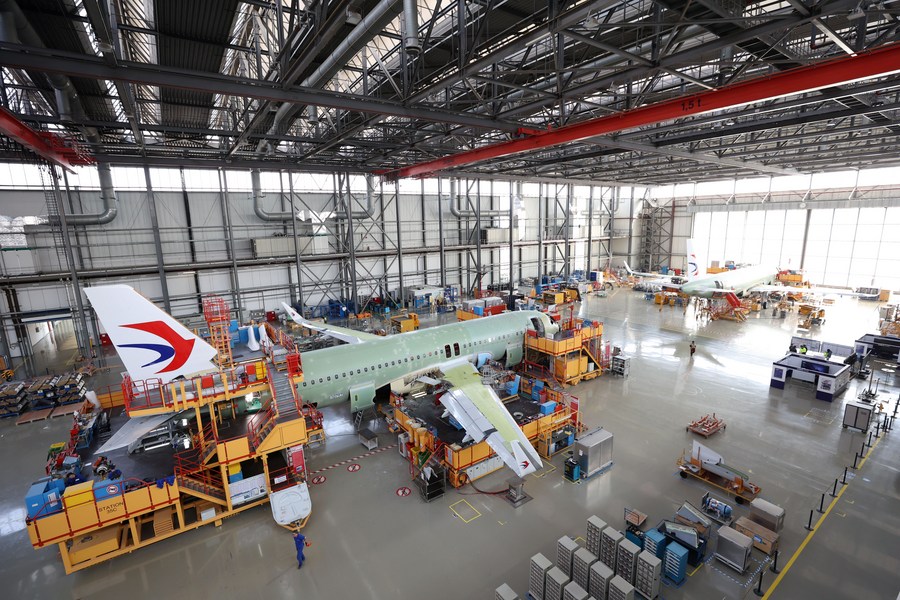
Staff members work at Airbus’ Tianjin final assembly line for the A320-family of jets in north China’s Tianjin, Feb. 24, 2022. (Airbus China/Handout via Xinhua)
China remains Airbus’s largest single-country market globally. Commercial aircraft deliveries in the country accounted for more than 23 percent of Airbus’s global deliveries in 2021, according to Airbus China.
“Airbus is confident in the Chinese market. We are committed to deeply integrating into the market and getting prepared together with local partners,” said George Xu, executive vice president of Airbus and chief executive officer of Airbus China.
Many more foreign enterprises share similar optimism about the potential of the Chinese market. Consumer goods giant Unilever will continue to serve Chinese consumers in the coming 100 years, said Zeng Xiwen, president of Unilever China Public Affairs.
Since 1923, Unilever has been doing business in China and has built eight production bases and one R&D center.
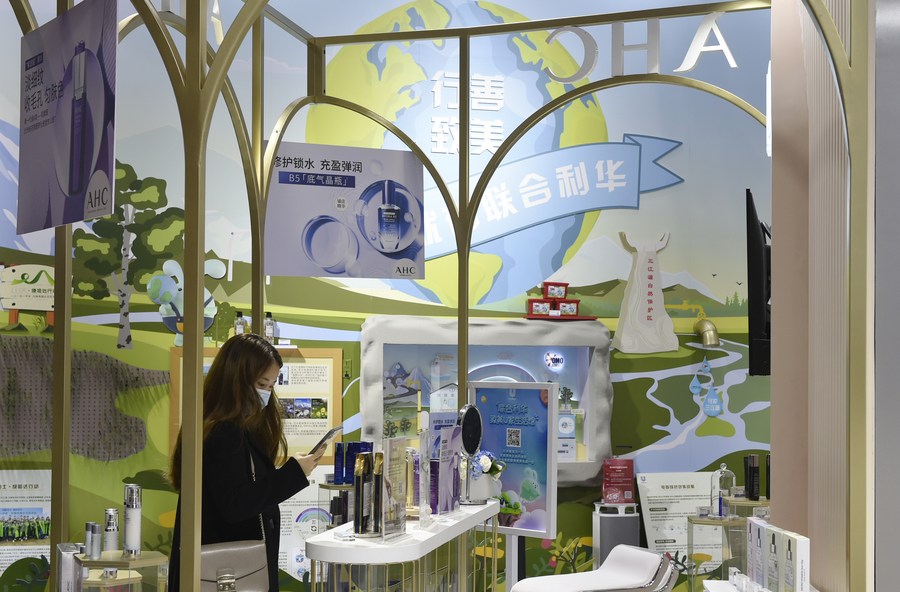
A woman visits the booth of Unilever during the 4th China International Import Expo (CIIE) in east China’s Shanghai, Nov. 8, 2021. (Xinhua/Lu Peng)
Unilever began building its full-category plant in August in Guangzhou. With an investment of 1.6 billion yuan, the plant is its largest investment project in China in recent years.
Upon completion in 2025, it will produce all categories of products, such as personal care products, food and ice cream, and its annual output value is expected to reach about 10 billion yuan.
BASF’s Lou sees more potential in the Chinese market. The company’s sales in Greater China, BASF’s second-largest market globally, hit a new high of 12 billion euros in 2021, accounting for about 15 percent of BASF’s global sales.
“China has become the world’s largest chemicals market, with more than 45 percent of the market share. That’s why we are investing in China.” Lou said, adding that the Zhanjiang Verbund site mirrors BASF’s confidence in the Chinese market, where the supply chain is well established.
Source: Xinhua
Editor: huaxia
2022-10-01 00:27:20









